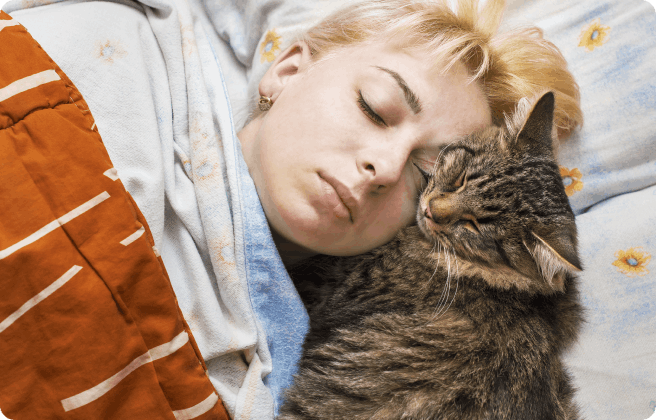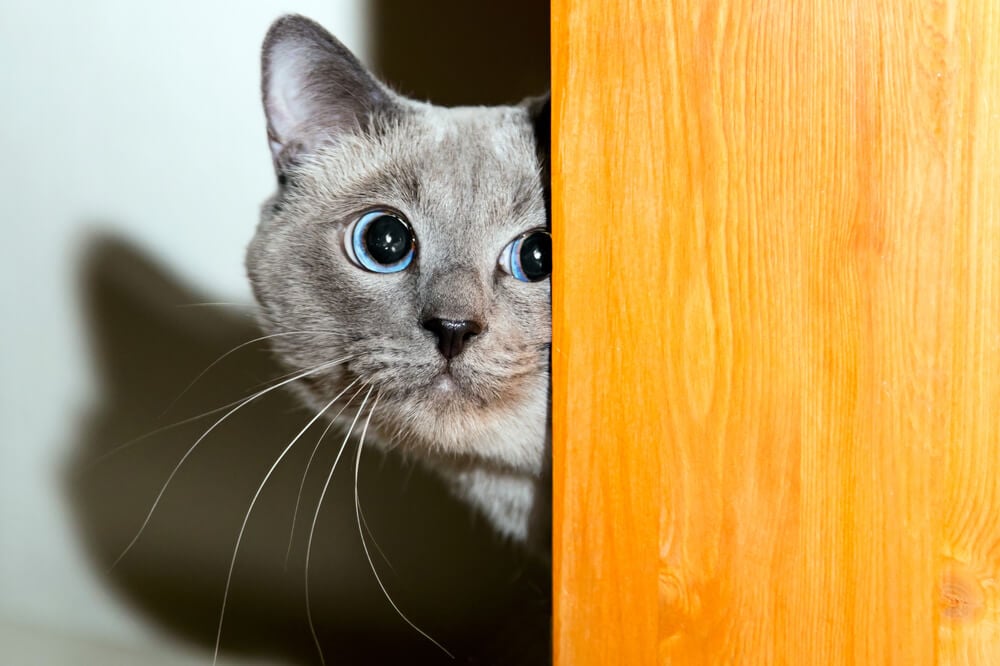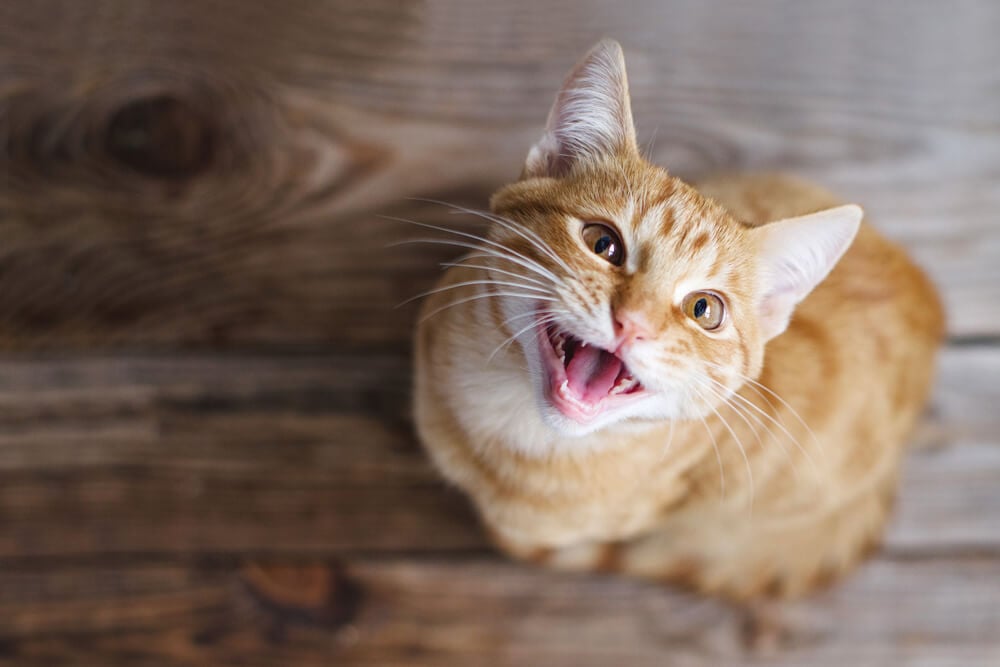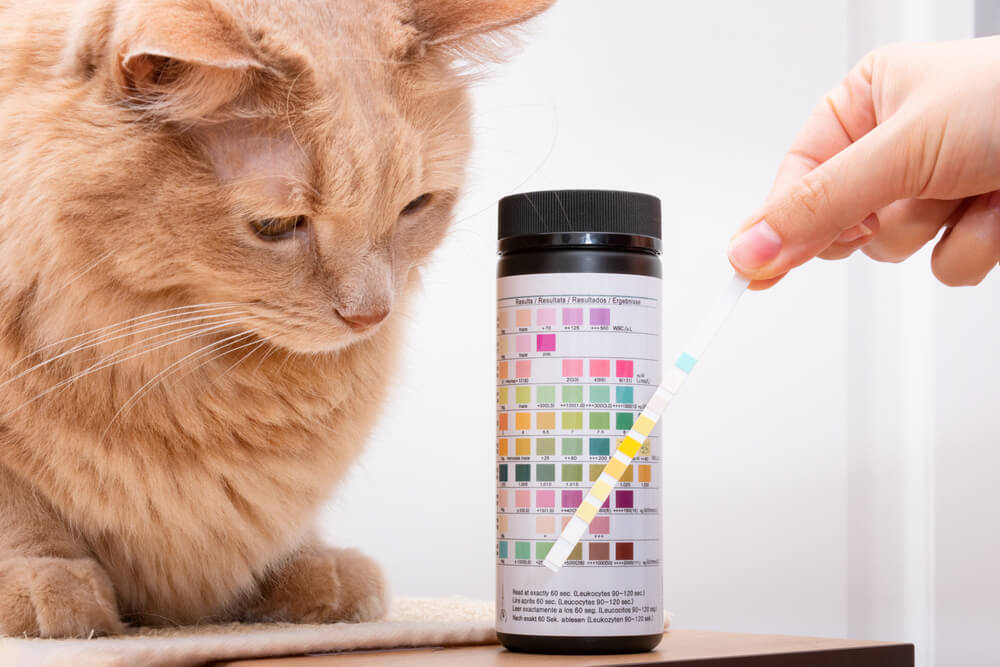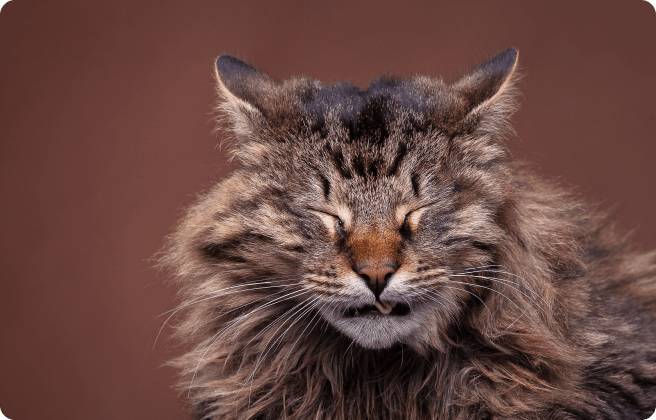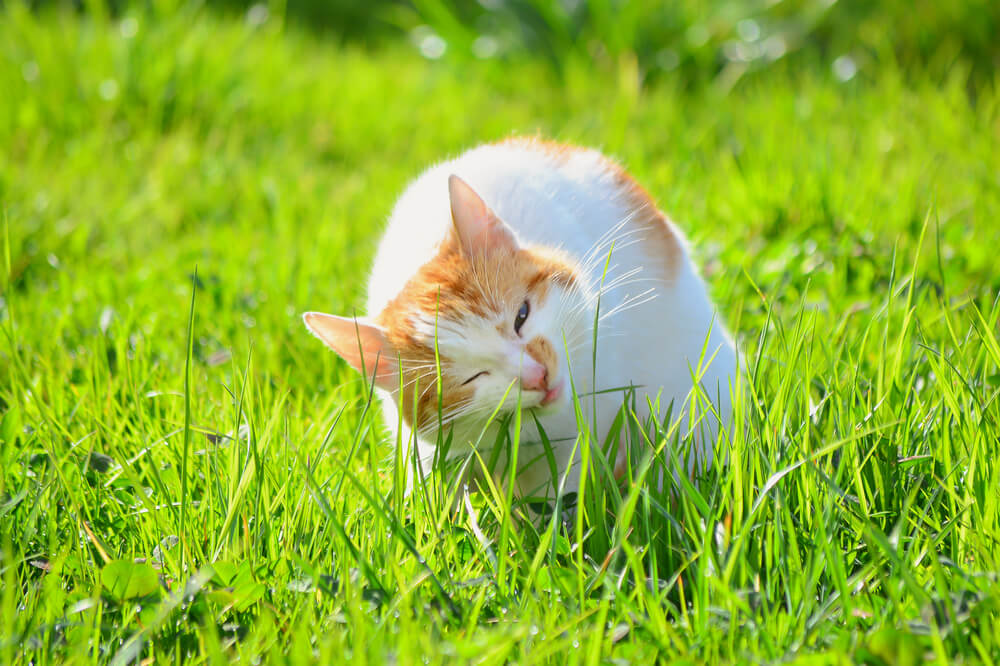
If you have a cat, you most likely have witnessed them munch on some greenery and wondered if it is safe.
But, don’t worry — cats eating grass is entirely normal. In fact, a university study found that 81% of the cats ate grass six or more times throughout their lives and showed no sign of illness or vomiting before or after. 1
Although cats eating grass is common, and you most likely nothing to worry about, it’s still good to understand why they are doing this and when you need to step in.
Why does my cat eat grass?
Unfortunately, there isn’t a straightforward answer to this question. There are several reasons why.
It’s genetic
Firstly, just like dogs, it’s essential to recognize that eating grass is an innate behavior for many cats. They have inherited this tendency from their wild ancestors, who also indulged in grazing on vegetation. Therefore, it’s ingrained in their genetic makeup.
Nutrients
Another reason behind your cat eating grass could be that it provides essential nutrients not found in their regular diet. Grass, particularly young shoots, contains vitamins and minerals such as folic acid, which could be lacking in your cat’s food. 2
This theory suggests that cats are instinctively drawn to grass to supplement their nutritional needs. Therefore, if your cat is eating one too many blades of grass, consider if they are receiving the essential nutrients of a complete and balanced diet from their food.
Your cat may be hungry
Another reason your cat may be munching on grass is simply hunger. If they’re feeling peckish between meals or not getting enough food, they might turn to grass as a filler. Grass can provide a sense of fullness without adding significant calories. Again, if you notice regular consumption of grass, have a chat with your vet about the current diet you’re feeding your cat as they may not be eating the correct amount of high-quality food.
Helps with an upset stomach
Contrary to popular belief, cats eating grass is not always a prelude to vomiting. Some suggest that grass acts as a natural laxative, aiding in digestion and helping to pass indigestible materials such as hairballs. For cats with upset stomachs or gastrointestinal discomfort, grass consumption may provide relief. 3
Tastes nice
Lastly, let’s not dismiss the simple pleasure cats derive from eating grass. Just like humans have preferences for certain foods, cats may enjoy the taste and texture of grass. It’s a sensory experience that appeals to their feline instincts.
Is my cat sick if they eat grass?
Not necessarily. Many cat parents assume their cat is ill when they see them eating grass, but as we’ve mentioned, there are many reasons for this eating habit. However, if you notice your cat frequently eating and vomiting grass, it could be a sign of a more serious health concern. Talk to your vet about ruling out certain health diseases such as inflammatory bowel diseases or parasites.
Should I stop my cat from eating grass?
When eaten in small, occasional amounts, the grass is generally fine. However, be cautious of any pesticides, herbicides, or poisonous house plants as they can cause serious harm to your cat. If eating grass becomes a daily occurrence, it may be time to step in — speak to the vet to rule out any health or diet issues. If your cat has a slight taste obsession, consider getting or growing specific cat grass which is typically grown from rye, barley, oat, or wheat seeds.
Should I feed my cat grass?
As much as it may be an instinct for your cat, there is no need to actively feed them grass. It’s not a necessary supplement and as cats can’t naturally digest grass, it’s best not to feed them it — especially grass that may contain fertilizers or parasites.
As mentioned, if your cat constantly craves grass, consider providing your cat with indoor grass options, such as cat grass trays, which offer a safe alternative to outdoor grass. These specially grown grasses are free from harmful chemicals and provide a safe outlet for your cat’s natural grazing instincts.
In conclusion, while cats eating grass may seem peculiar, it’s a normal and instinctive behavior rooted in their biology. By understanding the reasons behind this behavior and taking necessary precautions, you can ensure your cat enjoys their grassy snacks safely and happily.
- https://www.smithsonianmag.com/smart-news/researchers-figure-out-why-cats-eat-grass-180972885 ↩︎
- https://vcahospitals.com/know-your-pet/where-the-green-grass-grows-grass-treats-for-cats#:~:text=Grass%20is%20a%20source%20of,may%20aid%20minor%20medical%20problems. ↩︎
- https://www.petmd.com/cat/general-health/why-do-cats-eat-grass ↩︎
We uphold the highest editorial standards when creating the authoritative content pet parents rely on and trust.
Every piece of clinical content on the Cat Food Advisor is reviewed by our certified Veterinary Advisory Board, which consists of licensed veterinarians and medically certified specialists.
Our reviews are completely independent; we are not paid by any pet food company to promote their products favorably. We do not accept money, gifts, samples or other incentives in exchange for special consideration. For more information see our Disclaimer & Disclosure page.




